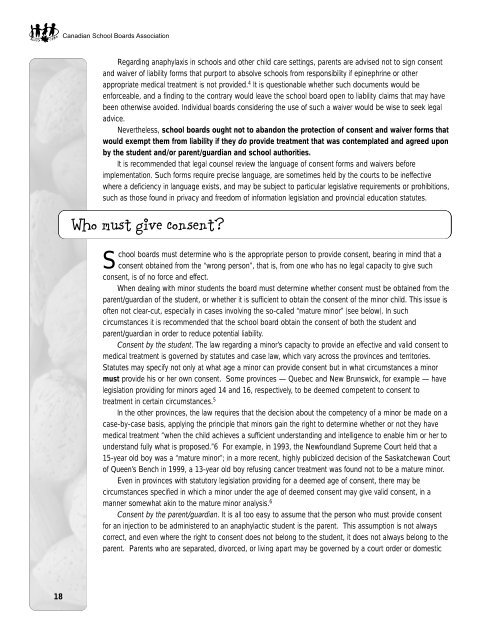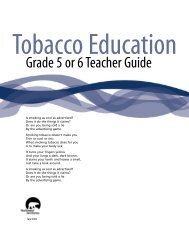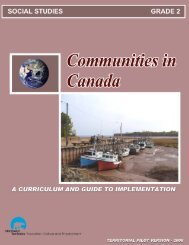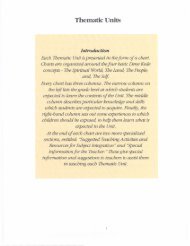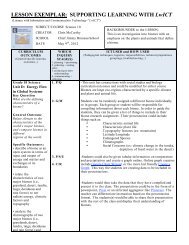Anaphylaxis: A Handbook for School Boards - Education, Culture ...
Anaphylaxis: A Handbook for School Boards - Education, Culture ...
Anaphylaxis: A Handbook for School Boards - Education, Culture ...
You also want an ePaper? Increase the reach of your titles
YUMPU automatically turns print PDFs into web optimized ePapers that Google loves.
Canadian <strong>School</strong> <strong>Boards</strong> AssociationRegarding anaphylaxis in schools and other child care settings, parents are advised not to sign consentand waiver of liability <strong>for</strong>ms that purport to absolve schools from responsibility if epinephrine or otherappropriate medical treatment is not provided. 4 It is questionable whether such documents would been<strong>for</strong>ceable, and a finding to the contrary would leave the school board open to liability claims that may havebeen otherwise avoided. Individual boards considering the use of such a waiver would be wise to seek legaladvice.Nevertheless, school boards ought not to abandon the protection of consent and waiver <strong>for</strong>ms thatwould exempt them from liability if they do provide treatment that was contemplated and agreed uponby the student and/or parent/guardian and school authorities.It is recommended that legal counsel review the language of consent <strong>for</strong>ms and waivers be<strong>for</strong>eimplementation. Such <strong>for</strong>ms require precise language, are sometimes held by the courts to be ineffectivewhere a deficiency in language exists, and may be subject to particular legislative requirements or prohibitions,such as those found in privacy and freedom of in<strong>for</strong>mation legislation and provincial education statutes.Who must give consent?<strong>School</strong> boards must determine who is the appropriate person to provide consent, bearing in mind that aconsent obtained from the “wrong person”, that is, from one who has no legal capacity to give suchconsent, is of no <strong>for</strong>ce and effect.When dealing with minor students the board must determine whether consent must be obtained from theparent/guardian of the student, or whether it is sufficient to obtain the consent of the minor child. This issue isoften not clear-cut, especially in cases involving the so-called “mature minor” (see below). In suchcircumstances it is recommended that the school board obtain the consent of both the student andparent/guardian in order to reduce potential liability.Consent by the student. The law regarding a minor’s capacity to provide an effective and valid consent tomedical treatment is governed by statutes and case law, which vary across the provinces and territories.Statutes may specify not only at what age a minor can provide consent but in what circumstances a minormust provide his or her own consent. Some provinces — Quebec and New Brunswick, <strong>for</strong> example — havelegislation providing <strong>for</strong> minors aged 14 and 16, respectively, to be deemed competent to consent totreatment in certain circumstances. 5In the other provinces, the law requires that the decision about the competency of a minor be made on acase-by-case basis, applying the principle that minors gain the right to determine whether or not they havemedical treatment “when the child achieves a sufficient understanding and intelligence to enable him or her tounderstand fully what is proposed.”6 For example, in 1993, the Newfoundland Supreme Court held that a15-year old boy was a “mature minor”; in a more recent, highly publicized decision of the Saskatchewan Courtof Queen’s Bench in 1999, a 13-year old boy refusing cancer treatment was found not to be a mature minor.Even in provinces with statutory legislation providing <strong>for</strong> a deemed age of consent, there may becircumstances specified in which a minor under the age of deemed consent may give valid consent, in amanner somewhat akin to the mature minor analysis. 6Consent by the parent/guardian. It is all too easy to assume that the person who must provide consent<strong>for</strong> an injection to be administered to an anaphylactic student is the parent. This assumption is not alwayscorrect, and even where the right to consent does not belong to the student, it does not always belong to theparent. Parents who are separated, divorced, or living apart may be governed by a court order or domestic18


